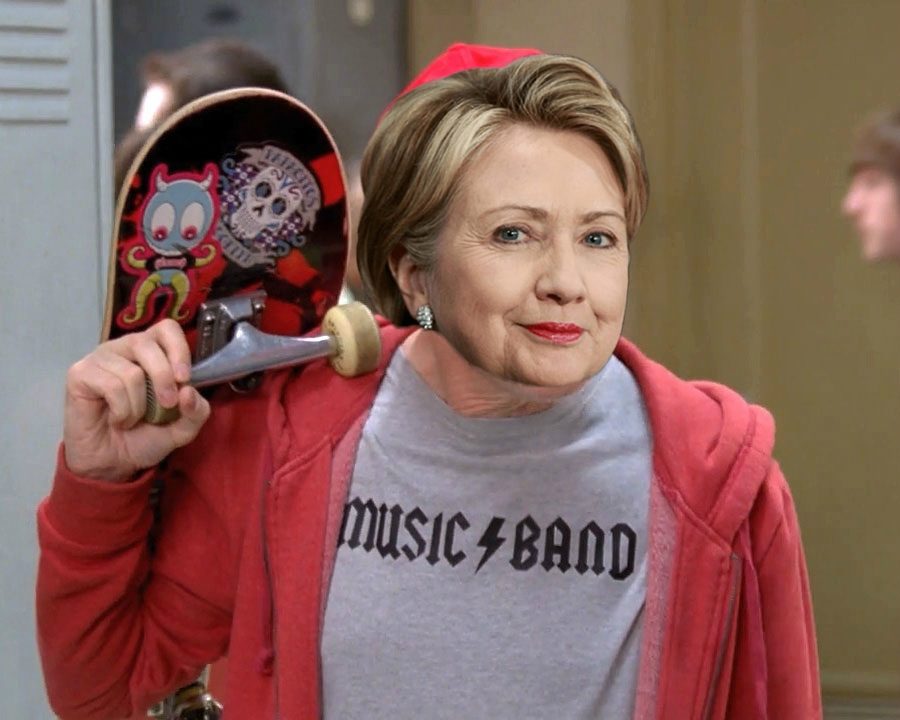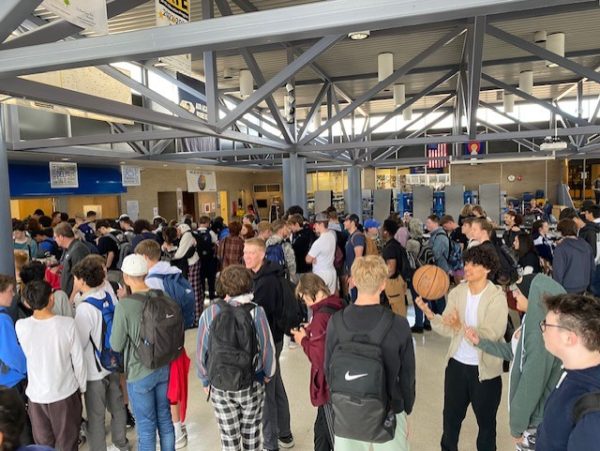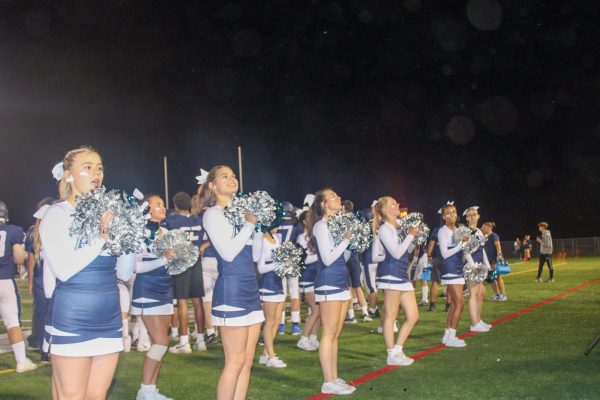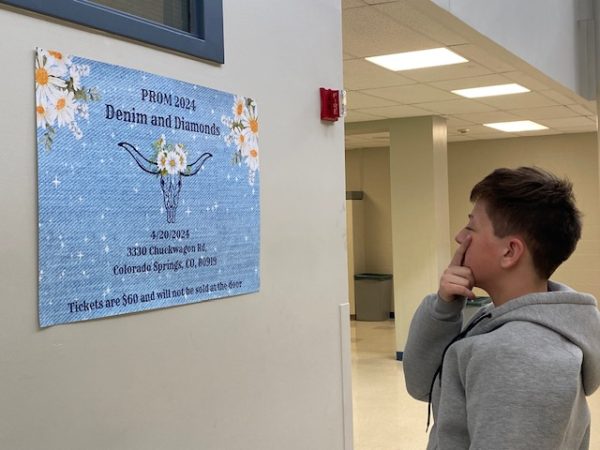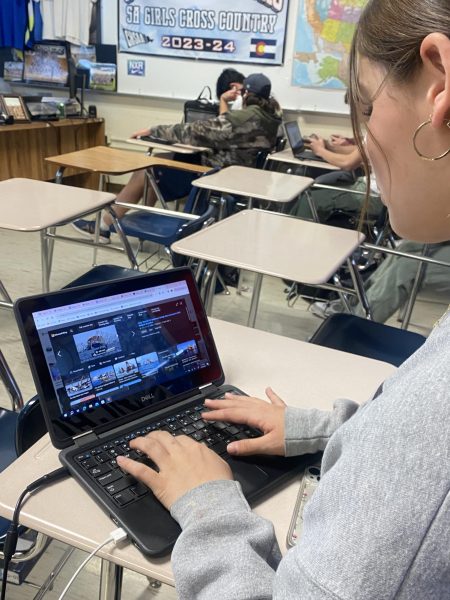Pandering in Politics—and the Media, Too
“Look at my African-American over here.” – Donald Trump, 2016
In the era of political correctness and sensitivity that we find ourselves in, pandering to minorities has become almost an essential tool for politicians and various forms of media.
Whether Democrat or Republican, Libertarian or Green Party, politicians seek to appeal to non-white individuals, a growing population of potential voters. With the prominence of media coverage in the last presidential election, this pandering was blatantly clear. Here are a few examples to refresh your memory:
On Power 105.1’s “The Breakfast Club,” Hillary Clinton mentions that she always carries hot sauce in her bag, a reference to Beyoncé’s “Formation” in which she does the same. The host of the morning show, Charlamagne Tha God, responded to Clinton’s claim by saying, “I just want you to know, people are going to see this and say, ‘She’s pandering to black people again.'” Hillary responded, “Okay, is it working?”
Ben Carson released a political rap ad featuring some slick lines aimed at young black voters, encouraging the listener to vote for him in the 2016 primary elections. It’s pretty “lit.” Here is a YouTube video from user Garrett Fogerlie that plays the rap in its entirety.
On May 5, 2016, then candidate Donald Trump tweeted in celebration of Cinco de Mayo. Nothing says pandering like a simple “I love Hispanics!” It was a good attempt, but sadly the holiday of Cinco de Mayo is a Mexican tradition, not Hispanic.
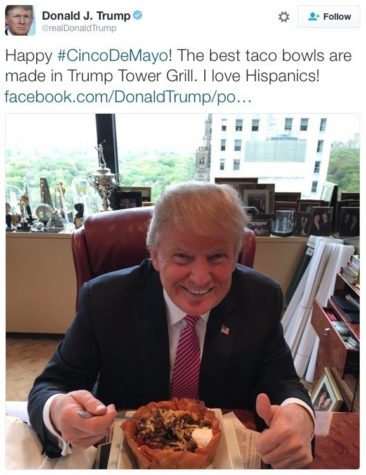
These few examples merely scratch the surface of pandering in American politics. With the non-white population in America expected to rise drastically in the coming decades while the white population declines, it is not surprising that politicians are looking to secure the votes of minority groups.
At the same time, however, many promises made on the campaign trail in order to gain the support of minority groups often become lost when the candidate reaches Washington. Such promises are extremely difficult to effect because Congress, the President, etc. attempt to serve the entirety of their constituents, of which the minorities are—as the name implies—minorities.
It is as if the minority groups in the United States are being rounded up, used for their votes, and then discarded until the next election cycle.
Yet, pandering is not just isolated to politics; minorities are also being used in the film and media industries as a shield from criticism and a politically correct promotion of diversity.
Take Ghostbusters (2016), for example. For those who are unfamiliar with the newest Ghostbusters movie, the 2016 edition features 4 women playing the roles of the Ghostbusters instead of the 4-man crew featured in the previous two iconic movies. Now, suppose that you dislike the movie. Boom, you’re sexist (at least according to some feminists).
Or take a more recent, more popular movie, Black Panther (2018). (I’ve heard extremely good reviews from many people, and a score of 97% on Rotten Tomatoes seems to confirm these sentiments. Sadly, I haven’t had the chance to see it.) 98% of the cast is African-American, an impressive number, and one that is touted proudly by many champions of “diversity.” Yet, with several newspaper headlines reading “Diversity Sells!”, it is important to note that 98% African-American is equally as “diverse” as 98% white.
In a perfect world where people are completely blind to color, gender, and any other personal differences, there would be no need for pandering in politics or crafting an especially diverse casts for a movie. Politicians would focus on measures that benefit all rather than just a particular targeted group, and movie-goers would praise Black Panther not because of the color of its cast, but because it actually is an excellent movie.
Yet, there will always be differences in society. Although such perfect unity as described will likely never exist, we may start by ensuring that everyone has a voice and that no one’s voice drowns out another’s. After all, we do live in a democracy.
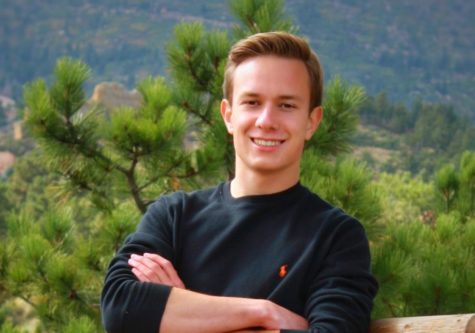
Shalom le'kulam, my name is Jonathan Flat and I am the Managing Editor for this outstanding school newspaper. As a 16-year-old in the 12th grade, I'll...



